

After the dress rehearsal, Mahler paced back and forth in the greenroom, wringing his hands and sobbing. He was beside himself. In the last movement he had let his ‘hero’ be killed by three violent blows of fate, a sort of Old Testament prophecy of the destruction of humanity by a higher power. In the score he symbolically notated three dull thuds made by a hammer on a wooden box which he had had especially built. But after the premiere he removed the third blow in measure 783. And as a symbol of the last remains of earthly existence he brought in the characteristic sound of cowbells, the last sounds which echo from the valleys and meadows on the highest summits of the world. They were meant to sum up the whole of human experience, from childlike innocence and wonder to fury, despair, and destruction. His Sixth Symphony is the most merciless and uncompromising portrayal of this vision….
Tracklist
Please note that the below previews are loaded as 44.1 kHz / 16 bit.Total time: 01:18:44
Additional information
| Label | |
|---|---|
| SKU | 22905 |
| Qualities | DSD 512 fs, DSD 256 fs, DSD 128 fs, DSD 64 fs, WAV 192 kHz, FLAC 192 kHz, FLAC 96 kHz |
| Channels | 2ch Stereo, 5 Channel Surround Sound, 2ch Stereo & 5ch Surround |
| Artists | |
| Composers | |
| Genres | |
| Mastering Engineer | Jared Sacks |
| Conductors | |
| Original Recording Format | |
| Cables | van den Hul T3 series |
| Digital Converters | Grimm A/D DSD / Meitner DA |
| Microphones | Bruel & Kjaer, Schoeps |
| Mastering Equipment | B&W 803 diamond series |
| Mixing Board | Rens Heijnis custom design |
| Producer | Hein Dekker |
| Recording Engineer | Hein Dekker, Jared Sacks |
| Recording location | Palace of Arts, Budapest Hungary, 2005 |
| Recording Software | Pyramix bij Merging |
| Recording Type & Bit Rate | DSD64 |
| Speakers | Audiolab, Holland |
| Awards | |
| Instruments | |
| Release Date | January 5, 2014 |
Press reviews
Audiophile Audition
Topflight surround recording is the first to be made in the new Budapest concert hall
The New Yorker
Fischer does a good job with this long and intensely personal work that seems to vacillate between hope and despair. Sometimes dubbed The Tragic, the symphony contains typical elements of Mahlerian nostalgia, such as the use of cowbells. While Fischer is sympathetic to such nostalgia, he never allows his reading to become sentimental. A clear sense of architecture is maintained throughout and the listener knows from the opening march that Fischer and his players mean business. The ensemble of the Budapest orchestra is exemplary and the engineering maintains Channel’s first-rate standards. In particular, the finale is superbly handled by all concerned. Well worth hearing, even if you have an older, more mellow version. The Age one remembers the Fischer as an earth-shaking “event.” This is Fischer’s first Mahler recording with the orchestra he has been preening and prepping since 1983. In his note included in the SACD booklet, he declares the orchestra now ready to record Mahler, and he is right. In fact, it sounds like this enthusiastic, virtuoso ensemble is ready to tackle anything. Fischer’s Mahler is fleet, lyrical, and very dramatic — exactly what this grim composition needs Fischer’s Channel disc is the first recording to come from Budapest’s new Palace of Arts, with its adjustable acoustic canopy. Channel’s sound is rich, warm, and clear, with awesome presence, yet no distortion. It is a must-have disc, especially if you have SACD multichannel playback capability
Sydney Morning Herald
Standout exceptions are the superbly made Ivan Fischer recordings of the Budapest Festival Orchestra, notably, their recent release of Mahler’s Sixth Symphony with Channel Classics, recorded in the newly opened Palace of Arts in Budapest. (…)
Classics Today.com
However, in contrast to Abbado’s boring Berliners, Fischer’s orchestra plays better, and he’s much better recorded. Just listen to the characterful brass in the coda of the first movement, with a particularly fine first trumpet, or the splendid woodwinds in the trios of the scherzo. () () Fischer also has a keen ear for Mahler’s special effects: the cowbells tinkle evocatively, and the offstage chimes are perfectly balanced at the start of the finale. () Best of all, the finale is terrific, as it must be in any performance of this work. It has the necessary weight, with imposing brass playing and aptly dark, heavy, but potent hammer blows. Fischer also times each return to the movement’s introduction especially well, knitting together the movement’s various episodes with unerring skill. The entire recapitulation and coda are masterfully paced, with excellent contributions from all sections. () () for a legitimate alternative viewpoint you will find it difficult to do better than this.
Universe
A good Mahler 6th is never a walk on the beach. When done well, and the Fischer/Channel Classics, is among the very best, if not the best recording I have heard (…) Five stars out of five –
Hi-Rez Highway
Fischer combines a probing intellect with an acute awareness of every emotional shift in any given score. This creates performances with transcendental energy, in which feeling and formal logic are held in perfect balance () () The playing throughout was beyond criticism. The Budapest Festival Orchestra, which Fischer founded in 1983, ranks among the most formidable ensembles in the world. This is the most impressive disc I’ve heard in a long, long time
Wholenote
Fischer emphasizes the dramatic and passionate aspects without a trace of sentiment. His orchestras virtuosity and precision are manifest in the capricious and lively pizzicato 3rd movement as well as in the whirlwind 4th. Fischer follows the footsteps of his erstwhile compatriots, the immortal Szell and Solti, with a stunning performance of the incredibly demanding and complex Mahler 6th. This recording with its superlative sound is now a clear first choice.
The Audio Critic
ts rather coolly performed. Fischers finale is one of the best on discs; unlike most performances, the listener is aware of the movements structure throughout, which in turn seals the structure of the entire symphony. Fine sound. Turoks Choice () I am something of a Hungarian chauvinist and the recently built National Concert Hall in the Palace of the Arts in Budapest is a remarkable achievement for a small country. Among other things, the hall’s reverberation time is tunable from 1 second to 4 seconds, an amazingly wide range. () () the CD sounds merely like a wonderful recording () () Fischer’s performance is right up there with the best Mahler Sixths, and both the stereo and multichannel layers of the SACD are flawless.
Telegraph
here is a real sense of a false dawn following the first hammer blow, a feeling of hope ferociously dashed after the second, and a coda that expresses the depths of resignation. The playing is marvellously characterised throughout and caught in the acoustics of the new hall with a rare vibrancy and impact. Arts, , CD of the week
Gramophone
lithe and alert, without necessary sounding (…) (…) While the excitable finale lacks the weight and import of big-name rivals, the transparent sound allows even idiosyncratic balances to register with naturalness.
BBC Music Magazine
Always impressive, though, is the expressive balance of the tense orchestral lines etched so clearly by Fischers marvellous Budapest players, from trenchant bass lines up to shrieking woodwind, and much assisted by the perfect acoustics of the citys new Palace of Arts. And the best comes last, as it always should in this work: Fischer knits together the strands of the apocalyptic finale with a clear head before going for a final adrenalin charge towards disaster as overwhelming as any on disc.
International Record Review
It sounds like this enthusiastic, virtuoso ensemble is ready to tackle anything. Fischers Mahler is fleet lyrical, and very dramatic exactly what this grim composition needs. Soundstage.com The first few bars of this performance give a good idea of what is to follow (…) (…) overwhelming, despite warm recorded sound and decent documentation.
ResMusica
on a ici un disque original, superbement enregistre, qui semble tre le premier volume dune integrale qui pourrait se poursuivre avec la Symphonie n2.
Suddeutsche Zeitung
Das Ergebnis ist ausgesprochen berzeugend und setzt sich wohltuend von einigen Interpretationstrends ab. (…) Schwbische Zeitung () virtuos auftrumpende Orchester () Suddeutsche Zeitung
Fono Forum
Schwer und dramatisch ist Mahlers Sechste. Aber das Budapest Festival Orchestra trifft den schmerzlich schnen Ton so genau, dass selbst die Trauer Freude macht. Klassik Tipps:
Klassieke Zaken
Verfrissend, te meer omdat het uitstekend musicerende orkest een bijzonder overtuigende en toegankelijke lezing neerzet van deze toch vaak wat als moeilijk bekend staande symfonie. (…)
Classics today.France
Une absolue russite sonore de la version SACD donnerait sans doute l’ensemble un relief qui en augmenterait l’importance discographique.
Fono Forum
Mit seinem hochkultivierten, exzellent eingestellten und noch immer jungen Budapest Festival Orchestra besteht Fischer die Prfung souvern, weil er neben minutiser Detailarbeit seinen Musiker gengend Raum lsst fr individuelle, polyphone Klangrede . (…)
Diapason
Les phrase sont dessins avec legance, sans urgence, presque ritenuto: menaant sa faon. Les decrescendos, impressionnants de contrôle, dévoilent des parentheses plus lgiaque, moins meurtries qu’a l’accoutume et quels solos!! La furia des marches expose la suractivité polyphonique la plus tendue, la plus excessive que Mahler ait mis en uvée. Premier station d’une nouvelle integrale? Ivan Fischer doit y songer,
Le Monde de la Musique
Ivan Fischer n’vite pas la grandiloquence et parat mme peu habit, malgr la clart d’un nonce orchestral qui ne verse pas dans la saturation sonore.
Classica
vritable chant funbre et d’anantissement.
Kwadratuur
het is een opname van de bovenste plank geworden (…) (…) Wat een stevige, zware Mahler kan worden, verandert onder Fischers directie in een heel subtiele, charmerende symfonie, waar de kracht minder in het overweldigende zit, maar meer in de melodische rijkdom. (…)
HIFI.nl
Het orkest klink fenominaal, vooral de koper- en houtblazers zijn schitterend. (…) De competitie van grote orkesten en dirigenten in de Mahler symfonien is gigantisch. Dat maakt het extra knap om met een originele visie te komen die ook nog eens dwingend overkomt, oftewel als de enig juiste manier waarop het werk gespeeld dient te worden. Een prestatie, en vooral een fantastische (SA)CD.
Telegraaf
Fischer laat de klanken een verhaal vertellen met tragische episoden, eufore verzuchtingen en in weelderige tonen geschilderde boerentafereeltjes. De actuele kwestie van de volgorde van het tweede en derde deel heeft Fischer overtuigend opgelost. Na talloze experimenten in de concertzaal bleek dat eerst het andante en vervolgens het scherzo het meest evenwichtig werken, concludeerde hij. Daarmee keert het pulserende begin van de symfonie na een rustige episode terug zodat er een fraaie samenhang in de vertelling ontstaat.
Only logged in customers who have purchased this product may leave a review.


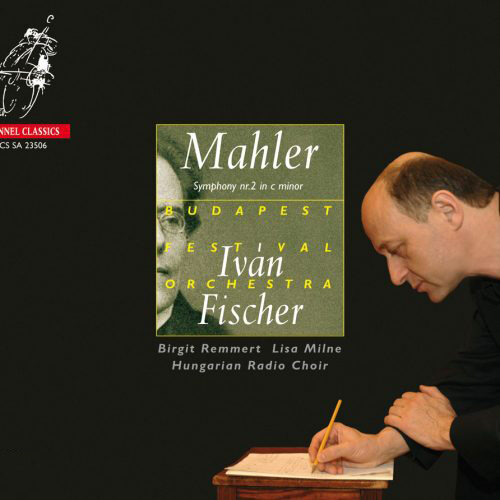
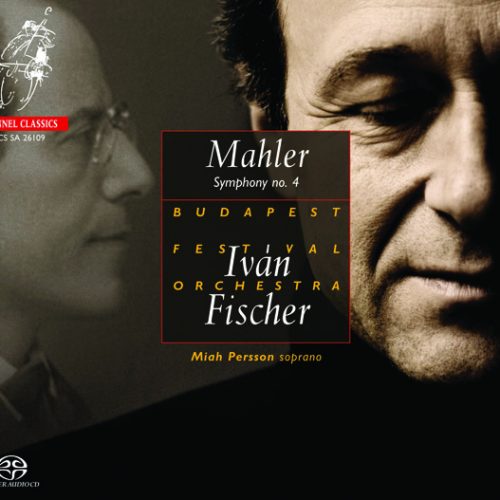
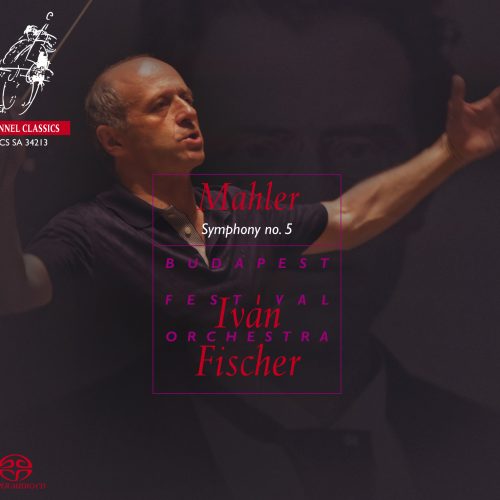

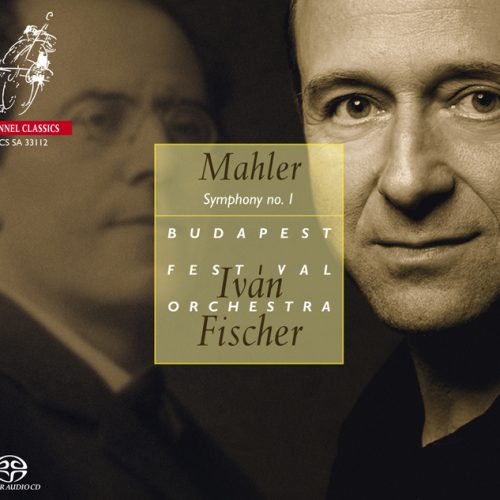


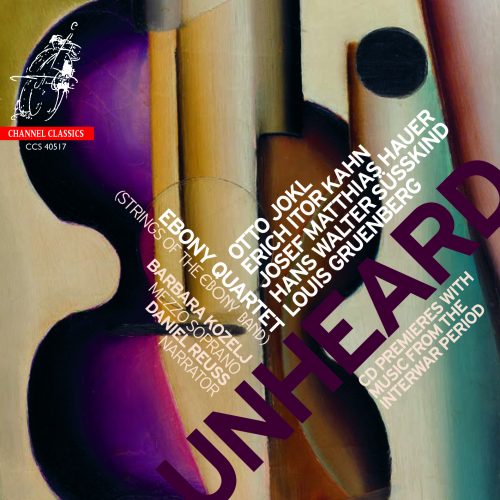

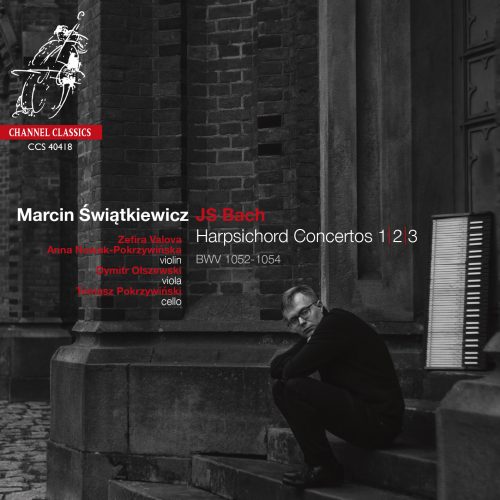
Reviews
There are no reviews yet.